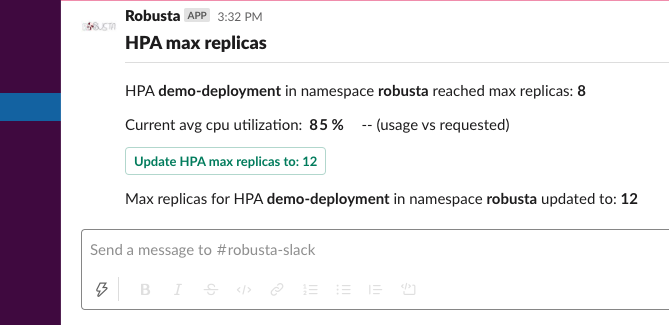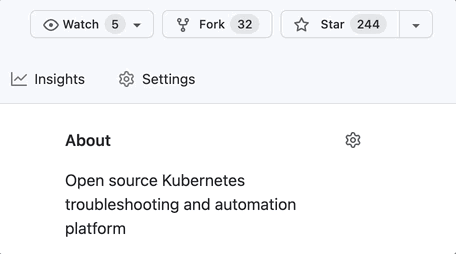Robusta streamlines everything that happens after you deploy your application. It is somewhat like Zapier/IFTTT for DevOps, with an emphasis on prebuilt useful automations and not just "build your own".
- Kubernetes monitoring - prebuilt Prometheus integration that enriches alerts with extra context and graphs
- Event-triggered automations for Kubernetes (like Argo Events) with an emphasis on simplicity
- Auto-remediations - out of the box fixes for common alerts. Write your own in Python.
- Change tracking - track and audit every change to your Kubernetes cluster
Monitor crashing pods and send their logs to Slack:
triggers:
- on_prometheus_alert:
alert_name: KubePodCrashLooping
actions:
- logs_enricher: {}
sinks:
- slackRemediate alerts with the click of a button:
Take manual troubleshooting actions, like attaching a debugger to a python pod:
robusta playbooks trigger python_debugger name=mypod namespace=default
Over 50 built-in automations »
- Install our python cli:
python3 -m pip install -U robusta-cli --no-cache
- Generate a values file for Helm:
robusta gen-config
- Install Robusta with Helm:
helm repo add robusta https://robusta-charts.storage.googleapis.com && helm repo update
helm install robusta robusta/robusta -f ./generated_values.yaml
Interested? Learn more about Robusta
- Slack - robustacommunity.slack.com
- Twitter - @RobustaDev
- LinkedIn - robusta-dev
- Jobs - jobs@robusta.dev
- Email Support - support@robusta.dev
Robusta is distributed under the MIT License. See LICENSE.md for more information.
We add new features regularly. Stay up to date by watching us on GitHub.
Thank you to all of our contributors!
An additional thanks to all the open source projects we use. Especially:
Each open source project is used in accordance with the relevant licenses. Details can be found on the website for each project.









